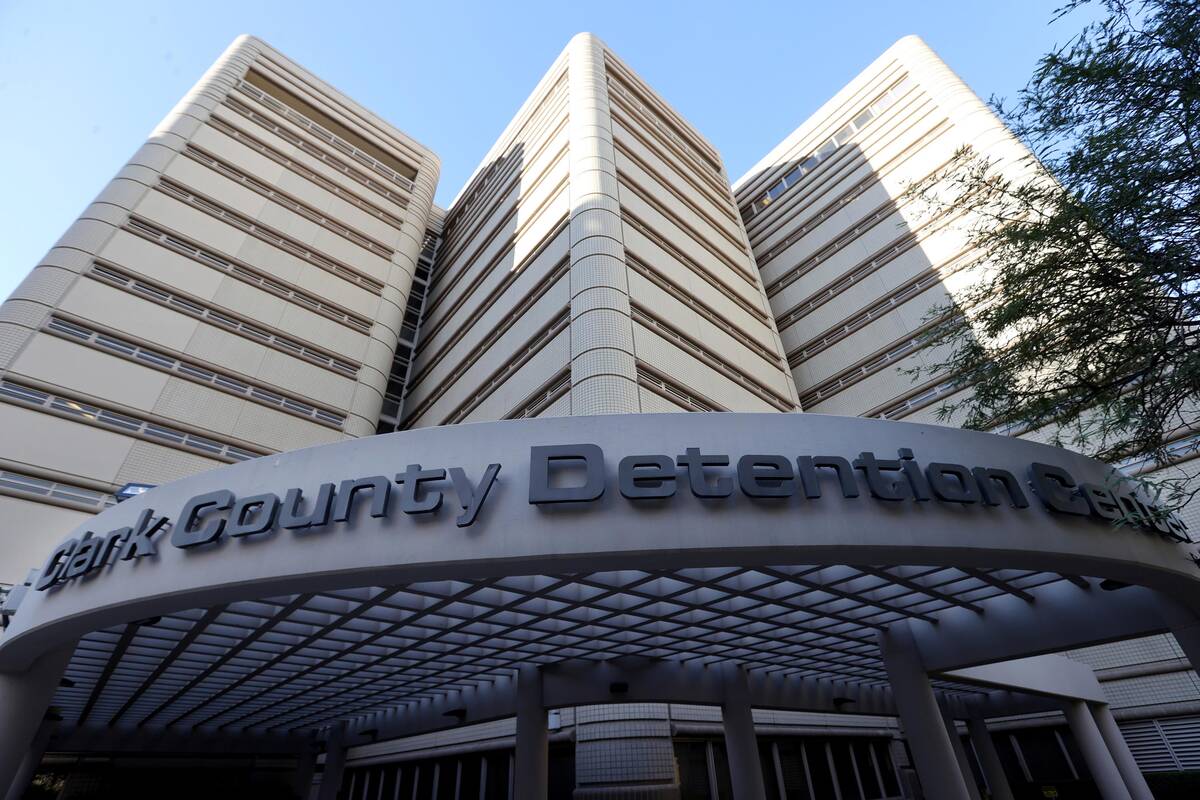Why are they locked up? A look inside Clark County Detention Center
More than 2,500 people were booked into the Clark County Detention Center in March, records from the Metropolitan Police Department showed.
Their alleged crimes ranged from battery to burglary, driving under the influence to murder, but among 7,604 charges, two crimes accounted for one-tenth of all bookings into the jail, which can house more than 1,500 inmates at a time.
The most booked charge in the jail in March was domestic battery first offense, which came up 597 times in jail records. SafeNest CEO Liz Ortenburger said she suspects domestic battery is the most booked charge every month.
Metro’s data showed that as of April 21, domestic violence was the second-highest reported crime after larceny and theft, which are counted as one charge.
“We’re still having domestic violence homicides,” she said. “So the real question is of those 550 plus bookings, how many cases actually move forward or are dismissed?”
Ortenburger said domestic battery is the top call Metro receives each month, and state law requires an arrest if an officer at the scene suspects domestic battery, but booking a suspect in the jail is only the first step.
“We don’t track conviction rates in this state, and so I don’t know what the outcomes of any of those cases are unless we have involvement with the survivor,” she said.
Metro Lt. Bill Giblin, who oversees the special victims unit of the department, said the Clark County district attorney’s office can prosecute a suspected abuser even if the victim does not want to press charges.
“Making an arrest in a domestic violence situation is the first step in stopping that cycle of violence for that family,” Giblin said. “That’s important. It could have been going on for a long time, and it could be a victim reporting or a neighbor. It doesn’t matter. As long as we determine the battery occurred, we make an arrest.”
Drug charges
Second on the list of charges that landed inmates behind bars in March, with 468, was first- or second-offense drug possession, less than 14 grams, of a scheduled one or two controlled substance. Schedule one and two substances include LSD, heroin, meth, Xanax and cocaine.
Athar Haseebullah, the executive director of the ACLU Las Vegas, said he would rather see law enforcement targeting drug dealers instead of arresting users.
“Steps to constantly criminalize possession doesn’t solve anything,” Haseebullah said. “This is a 30-year policy failure that’s led to no successful outcomes overall and continues to be a blight on our society.”
Fentanyl also is considered a schedule two drug, and Haseebullah advised he would like to see authorities use fentanyl test strips to detect how pure a drug is.
“Anybody can arrest somebody for drug stuff, that’s not the fix,” said Metro Sgt. Matt Kovacich, who oversees the Office of Community Engagement. “We need to look at the underlying problem.”
Kovacich said police in his office refer users to the LIMA program, which stands for law enforcement intervention for mental health and addiction. People suffering from substance abuse undergo a nine to 12-month detox and, if necessary, can seek help getting a job and housing.
LIMA started in February 2020, and more than two years later 81 people have graduated and only one relapsed, Kovacich said.
“We keep track of the patrol cop that refers them and invite the cop to graduation,” Kovacich said. “We often hear, ‘If it wasn’t for this program, I’d be in the streets.’”
Contact Sabrina Schnur at sschnur@reviewjournal.com or 702-383-0278. Follow @sabrina_schnur on Twitter.





























